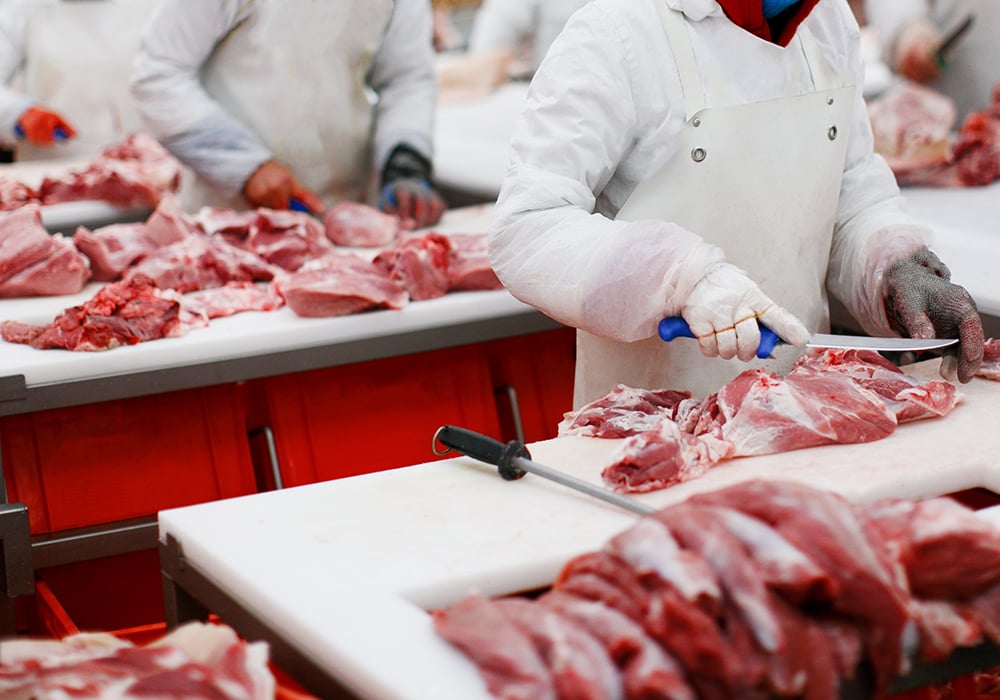Ontario beef producers frustrated by delays in resolving SRM issue

A resolution demanding action on specified risk materials received mixed reactions at the Beef Farmers of Ontario annual general meeting
Feb. 22.
Read Also
How to fix the WTO for agricultural disputes
Glacier FarmMedia – A rebuilt World Trade Organization would benefit agriculture, according to long-time Canadian trade negotiator Steve Verheul. Verheul…
Dale Mountjoy from Durham moved and spoke to the resolution, asking the BFO to request that the Canadian Cattle Association allocate $1 million for legal fees to harmonize specified risk material (SRM) requirements with the United States within six months.
Why it matters: Removing SRM in cattle at slaughter costs Canadian beef producers approximately $35 million more annually than is paid by American producers.
Mountjoy said the BFO board is doing a great job providing public awareness and promoting Ontario beef, but the resolution “gets right down to the meat” of the issue.
“We’re here to sell protein,” Mountjoy said. “And right now, we’re on a very uneven playing field on the amount of protein from every animal that leaves our property …”
His resolution and sub-resolutions from Peterborough and Rainy River seek a full-court-press from the board and CCA to resolve the issue, after which they can return to doing the “feel-good stuff,” he added.
“There’s a whole lot more in the mixture than just the one issue at this time,” said BFO president Craig McLaughlin. “We can’t abandon what we’re doing (through marketing). For example, on our export markets, it adds 40 per cent of the value to every carcass. They are strong, factual financial benefits to the producers.”
The national organization’s top priority is ensuring the SRM decision is a science-based agreement accepted by all parties, said Matt Bowman, CCA board member, during the resolution debate.
“Once we get the science worked out on it, then we can work on the political side to make sure this happens as fast as we can,” Bowman said. “Six months might be pretty aggressive expectations of getting this solved.”
The CCA, Canadian Food Inspection Agency and Beef Cattle Research Council partnered on a Canadian SRM risk study, the first in 13 years. The second-to-last report was delivered Dec. 22 for international peer review. The final peer-review report is expected sometime this month.
Mountjoy respectfully rebutted Bowman’s timeline assessment during closing arguments, saying the industry met the criteria to adjust SRM amounts four and half years ago.
“We were told in the room here yesterday that we met all the criteria; the ball is in CFIA’s court,”
he said. “The purpose of this motion is, this is the focus until this is solved. Park in front of CFIA. Get this done.”
Jack Chaffe, BFO past-president and CCA officer at large, said Canada imposed stringent SRM rules after bovine spongiform encephalopathy closed trade borders and nearly decimated the industry.
“The last case that was named, excluding the atypical cases, was nine years ago, which set our negligible risk status back,” he said. “It’s just been one hurdle after another, but we just need to stay science-based. It will take time, but it will happen.”
Chaffe clarified that the 25 cents per pound SRM fee that producers pay on an OTM (over 30 month) animal’s carcass weight won’t change once the SRM removal percentage is in line with the U.S.
According to the resolution, Canadian SRM removal and disposal costs $35 million more than it does in the United States, costing Ontario beef producers thousands and creating a competitive disadvantage.
After 21 years of little to no movement on the issues, McLaughlin told Farmtario he wasn’t surprised the motion passed narrowly by 57 per cent.
“To me, it was a vote clearly out of frustration. They put a dollar value on it. They put a timeline on it. They just want to see a result,” he said. “These answers should come from CFIA, but they’re not. Can we speed up the process? Again, I’m not sure.”
When a grassroots member resolution garners support, McLaughlin said it could spur action when, in this case, the CFIA is alerted and asked to address communication and industry frustration.
“If they can give us communication back on why it’s taking so long, even if we got briefing notes that we could take back to the membership, that would help,” he suggested.
If the CCA forces the CFIA into litigation, McLaughlin is concerned it will slow the process, especially following the CFIA’s recent win in a BSE class action lawsuit.
“I’m afraid when you got to litigation, $1 million won’t go very far in this case. (CFIA) are gun shy, so they are taking extreme caution moving forward with SRM.”
– With files from John Greig, Senior Livestock Editor
Source: Farmtario.com

